Friday, June 16, 2017
1:30 – 2:30 “I am here!”:
Intersectionality, Ableism, & Social (In)Visibility
1:30 – 2:30 “I am here!”:
Intersectionality, Ableism, & Social (In)Visibility
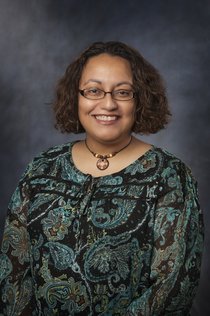
Moderator: Lisette Torres-Gerald | PhD Candidate, Nebraska
Lisette Torres-Gerald is a trained scientist, educator, and scholar-activist whose work focuses on addressing racial and gender inequity in science, specifically, and higher education, generally. She is interested in how power and privilege influence the social dynamics of the scientific community as well as the experiences of women of color in science. As a doctoral candidate in the School of Education at Iowa State University, she is currently examining how scientist bloggers of color disrupt or maintain master narratives surrounding knowledge production and dissemination. She also works full-time as the Assistant Director of the Cooper Foundation for Academic Resources and Supplemental Instruction Supervisor at Nebraska Wesleyan University (NWU). At NWU, she coordinates the Louis Stokes Alliance for Minority Participation (LSAMP) program collaboratively with colleagues to recruit and retain students of color in science disciplines.
Her relationship to the mission and vision of the National Coalition for Latinxs with Disabilities (NCLD) is both personal and professional. She identifies as a Latinx with a non-apparent disability, has siblings with non-apparent disabilities, and has a parent who is visually impaired. Her interest in scholar activism, intersectionality, and Critical Race Theory as well as her lived experience as a Latinx with a disability in the academy has inspired her to work in collaboration with colleagues nationwide to found NCLD. The strengths that she brings to NCLD include connections Dis/ability critical race studies (DisCrit) scholars, familiarity with DisCrit theory, editorial/writing experience, experience with building academic/educational organizations and programs, workshop development and implementation, and conference planning.
Lisette is a co-founder of the National Coalition for Latinxs with Disabilities.
Lisette Torres-Gerald is a trained scientist, educator, and scholar-activist whose work focuses on addressing racial and gender inequity in science, specifically, and higher education, generally. She is interested in how power and privilege influence the social dynamics of the scientific community as well as the experiences of women of color in science. As a doctoral candidate in the School of Education at Iowa State University, she is currently examining how scientist bloggers of color disrupt or maintain master narratives surrounding knowledge production and dissemination. She also works full-time as the Assistant Director of the Cooper Foundation for Academic Resources and Supplemental Instruction Supervisor at Nebraska Wesleyan University (NWU). At NWU, she coordinates the Louis Stokes Alliance for Minority Participation (LSAMP) program collaboratively with colleagues to recruit and retain students of color in science disciplines.
Her relationship to the mission and vision of the National Coalition for Latinxs with Disabilities (NCLD) is both personal and professional. She identifies as a Latinx with a non-apparent disability, has siblings with non-apparent disabilities, and has a parent who is visually impaired. Her interest in scholar activism, intersectionality, and Critical Race Theory as well as her lived experience as a Latinx with a disability in the academy has inspired her to work in collaboration with colleagues nationwide to found NCLD. The strengths that she brings to NCLD include connections Dis/ability critical race studies (DisCrit) scholars, familiarity with DisCrit theory, editorial/writing experience, experience with building academic/educational organizations and programs, workshop development and implementation, and conference planning.
Lisette is a co-founder of the National Coalition for Latinxs with Disabilities.
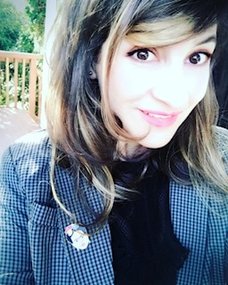
Sara Acevedo | PhD Candidate, California Institute of Integral Studies
Sara M. Acevedo (Neurowitch) is an autistic mestiza, educator, and disability justice advocate born and raised in Colombia. Her background is in disability studies and activist anthropology. Sara is adjunct faculty in interdisciplinary studies and a doctoral candidate in Anthropology and Social Change at the California Institute of Integral Studies (CIIS) in San Francisco, California. She also currently serves as diversity and disability advocacy fellow for the Office of Diversity and Inclusion at CIIS. Her dissertation work revolves around the experiences of autistic grassroots leaders, educators and public intellectuals based in Berkeley, California. The work of these leaders is unprecedented in disability service provision, since they themselves design, implement and oversee two community-based transition programs serving autistic and otherwise neurodivergent youth in the Bay Area. They do so by following a model of education that they have themselves created and applied in practice, the principles of liberatory education, multiple voices in the neurodiversity movement as well as a set of other disability justice strategies. With their work, they are bringing a whole new set of possibilities for intellectually and developmentally disabled youth to safely engage in their own communities of choice.
Sara has recently collaborated with U.S. grassroots leaders in the Mental Health movement, The Mad Pride Movement, and the Neurodiversity Movement in order to potentialize cross- dialogue and coalition building. This collaboration emphasizes shared political and educational aims while honoring the multiplicity of lived experiences that each bring to the table.
Sara is co-founder of the Spanish blog "Autismo, Liberación y Orgullo", alongside co-author Mónica Vidal Gutiérrez, another autistic Colombian woman and mother to an autistic son. The blog is a political, educational and informational response to the lack of literature, resources, grassroots materials and activist narratives authored by Spanish-speaking autistics and otherwise neurodivergent people in Spanish speaking countries, where the primacy of the medical and the charity model of disability is still strong.
Sara M. Acevedo (Neurowitch) is an autistic mestiza, educator, and disability justice advocate born and raised in Colombia. Her background is in disability studies and activist anthropology. Sara is adjunct faculty in interdisciplinary studies and a doctoral candidate in Anthropology and Social Change at the California Institute of Integral Studies (CIIS) in San Francisco, California. She also currently serves as diversity and disability advocacy fellow for the Office of Diversity and Inclusion at CIIS. Her dissertation work revolves around the experiences of autistic grassroots leaders, educators and public intellectuals based in Berkeley, California. The work of these leaders is unprecedented in disability service provision, since they themselves design, implement and oversee two community-based transition programs serving autistic and otherwise neurodivergent youth in the Bay Area. They do so by following a model of education that they have themselves created and applied in practice, the principles of liberatory education, multiple voices in the neurodiversity movement as well as a set of other disability justice strategies. With their work, they are bringing a whole new set of possibilities for intellectually and developmentally disabled youth to safely engage in their own communities of choice.
Sara has recently collaborated with U.S. grassroots leaders in the Mental Health movement, The Mad Pride Movement, and the Neurodiversity Movement in order to potentialize cross- dialogue and coalition building. This collaboration emphasizes shared political and educational aims while honoring the multiplicity of lived experiences that each bring to the table.
Sara is co-founder of the Spanish blog "Autismo, Liberación y Orgullo", alongside co-author Mónica Vidal Gutiérrez, another autistic Colombian woman and mother to an autistic son. The blog is a political, educational and informational response to the lack of literature, resources, grassroots materials and activist narratives authored by Spanish-speaking autistics and otherwise neurodivergent people in Spanish speaking countries, where the primacy of the medical and the charity model of disability is still strong.
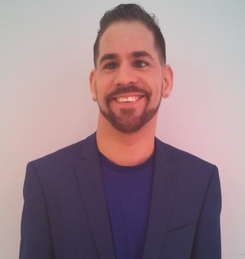
Wilfredo Gomez | Independent Scholar/Researcher/Activist
Wilfredo Gomez is an independent scholar, researcher, and activist. His research interests center on the formal and informal sites where learning and cross-cultural exchange take place. The pursuit of those questions are undertaken via cultural studies, disability studies, performance and literary studies.
His public writing has appeared in outlets such as the NewBlackMan and the Feminist Wire, while his academic work has appeared in places like Korina Jocson's Cultural Transformations: Youth and Pedagogies of Possibility, amongst other publications. He completed his bachelor's degree in political science at Haverford College, and completed master's degrees in English and Africana Studies, at Bucknell University and the University of Pennsylvania, respectively.
He has presented work at institutions such as Swarthmore College, Harvard University, Princeton University, and the University of Pennsylvania, amongst other colleges and universities. He has also spoken at the U.S. Social Forum in Philadelphia, where the subject of his presentation was on the disabled experience and the need for a renewed focus on social justice initiatives and a more inclusive policy agenda. In previous professional endeavors, he was an Oral History Researcher at the Center for Puerto Rican Studies at Hunter College and a college access counselor at a charter high school.
Wilfredo Gomez is an independent scholar, researcher, and activist. His research interests center on the formal and informal sites where learning and cross-cultural exchange take place. The pursuit of those questions are undertaken via cultural studies, disability studies, performance and literary studies.
His public writing has appeared in outlets such as the NewBlackMan and the Feminist Wire, while his academic work has appeared in places like Korina Jocson's Cultural Transformations: Youth and Pedagogies of Possibility, amongst other publications. He completed his bachelor's degree in political science at Haverford College, and completed master's degrees in English and Africana Studies, at Bucknell University and the University of Pennsylvania, respectively.
He has presented work at institutions such as Swarthmore College, Harvard University, Princeton University, and the University of Pennsylvania, amongst other colleges and universities. He has also spoken at the U.S. Social Forum in Philadelphia, where the subject of his presentation was on the disabled experience and the need for a renewed focus on social justice initiatives and a more inclusive policy agenda. In previous professional endeavors, he was an Oral History Researcher at the Center for Puerto Rican Studies at Hunter College and a college access counselor at a charter high school.
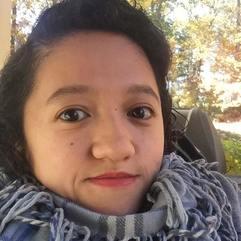
Sandy Ho | Organizer, Disability & Intersectionality Summit
Sandy Ho is a community-organizer, and disability justice activist residing in Boston, MA. When not wearing her day-job hat, Sandy is co-teaching the first-ever interdisciplinary Disability Studies course at Lesley University. She is also the founder, and co-organizer of the Disability & Intersectionality Summit, as well as the former Program Manager for the Thrive Mentoring group for disabled young women where she founded the international Letters to Thrive project. In 2015, she was honored as a White House Champion of Change for her community-building work among young women with disabilities, and the importance of mentorship. In 2009, she began her passion for social justice and community-organizing as an AmeriCorps member working to create change in access to higher education among first-generation community college students. Sandy is informed by her values as a child of Asian immigrants, her queer identity, and her socio-political community ties as a proud criptastic woman. She continues to serve on the Easter Seals Massachusetts Board of Directors and has since 2013. Other than a heavy-dose of activism and rabble-rousing, she dislikes professional bios and prefers to keep things low-key with a healthy stack of literary fiction and an even healthier mound of ice cream by her side. Sandy was born, raised, and educated in Massachusetts but also proudly shares residency with Red Sox Nation.
Sandy Ho is a community-organizer, and disability justice activist residing in Boston, MA. When not wearing her day-job hat, Sandy is co-teaching the first-ever interdisciplinary Disability Studies course at Lesley University. She is also the founder, and co-organizer of the Disability & Intersectionality Summit, as well as the former Program Manager for the Thrive Mentoring group for disabled young women where she founded the international Letters to Thrive project. In 2015, she was honored as a White House Champion of Change for her community-building work among young women with disabilities, and the importance of mentorship. In 2009, she began her passion for social justice and community-organizing as an AmeriCorps member working to create change in access to higher education among first-generation community college students. Sandy is informed by her values as a child of Asian immigrants, her queer identity, and her socio-political community ties as a proud criptastic woman. She continues to serve on the Easter Seals Massachusetts Board of Directors and has since 2013. Other than a heavy-dose of activism and rabble-rousing, she dislikes professional bios and prefers to keep things low-key with a healthy stack of literary fiction and an even healthier mound of ice cream by her side. Sandy was born, raised, and educated in Massachusetts but also proudly shares residency with Red Sox Nation.
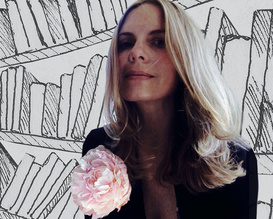
Linda Williams | Clinical Psychologist/Founder, Invisible Disability Project
Linda Williams is a Clinical Psychologist who combined disability activism with a social vision to found, Invisible Disability Project, (IDP), a social/cultural movement and an educational media project that consciously disrupts “invisibility” imposed upon unseen disabilities at the intersections of race, class, gender, and sexuality. IDP envisions a world where people with unseen disabilities no longer encounter barriers to equitable public education, competitive employment, healthcare, personal relationships, technology, media representation, laws and policy.
IDP rejects “normalcy” as a form of identification to be aspired to and seeks to reclaim identities previously rendered “invisible”. More specifically, IDP aims to reveal how “bodily diversity” and “neurodiversity” more aptly describe every human experience as opposed to the “normal” and “abnormal” binaries. IDP effects change through educational initiatives for schools, public conversations, and interactive online content with the goal of creating an informed, mutually supportive community.
Linda Williams is a Clinical Psychologist who combined disability activism with a social vision to found, Invisible Disability Project, (IDP), a social/cultural movement and an educational media project that consciously disrupts “invisibility” imposed upon unseen disabilities at the intersections of race, class, gender, and sexuality. IDP envisions a world where people with unseen disabilities no longer encounter barriers to equitable public education, competitive employment, healthcare, personal relationships, technology, media representation, laws and policy.
IDP rejects “normalcy” as a form of identification to be aspired to and seeks to reclaim identities previously rendered “invisible”. More specifically, IDP aims to reveal how “bodily diversity” and “neurodiversity” more aptly describe every human experience as opposed to the “normal” and “abnormal” binaries. IDP effects change through educational initiatives for schools, public conversations, and interactive online content with the goal of creating an informed, mutually supportive community.